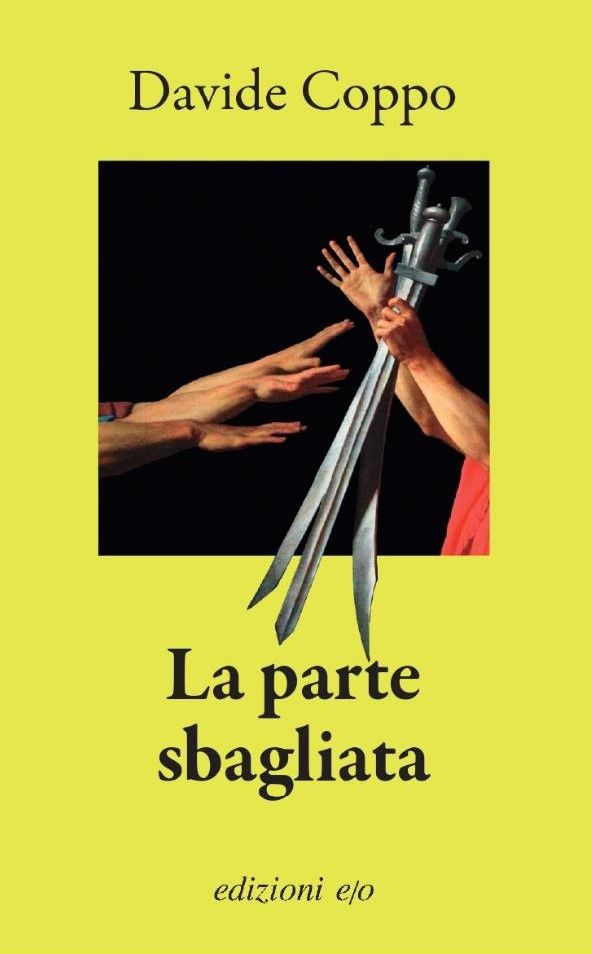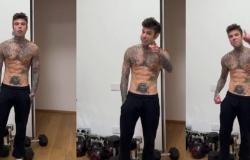Davide Coppoborn in ’86, has worked in the editorial staff of Studio magazine, with various roles. After publishing an essay in The Game Unplugged (Einaudi, 2019), now signs for e/o The wrong sidehis first novelwhich brings to mind one of his articles from 2021, entitled The things I know about the far right in Milan.
In fact, we are talking about a novel, partly autobiographical (“Not entirely true, not even entirely made up“, summarized Coppo, who writes in the acknowledgments that “this is a fictional book, but the shadows it casts extend over a real past”), which starts from a question: what drives a young man from a good familywithout particular traumas behind, to choose the path ofpolitical extremism?
We are in the 2000s, not the 70s: Hectorthe protagonist, left the province and arrived in the city to enroll in a large downtown high schoolfinds himself without points of reference, lost, above all humanly, in a territory and a community in which he is unable to find references or friendships.
It may also interest you
There you will soon find in a neo-fascist groupfirst by chance, and then by cultivating his own radicalization, detachment from family and friends, until an inevitable and tragic ending.
The book is presented as “a wrong coming-of-age novela climax not so much – or not only – of violencebut also of bonds that tighten, others that fray, and above all of the construction of aidentity“.
At the same time, more universally the book is about the emotional disorientation that we find ourselves dealing with during theadolescenceand tells a journey into the attraction that evil always knows how to exert. It is a fictional book, but the shadows it casts extend over a real past experienced by the author.

On ilLibraio.it, courtesy of the publishing house, we offer an excerpt:
On the sheet was written “Europa Nazione” with those characters that some fans also use at the stadium. It was a slogan that I liked, and with my comrades, using tape to delimit the borders of the letters and black cans to fill them, I had helped to write it. I also liked the blue flag with the yellow stars arranged in a circle, it reminded me of the theme song that I saw on television as a child before certain broadcasts of the Eurovision programme. Here is our surrounding wall to protect us from globalization, I told myself with a small epiphany: a great and ancient homeland, after all another thing that made me feel in my mouth, and behind my eyes, the sweet taste of childhood. Another thing I felt was right to fight for.
That day in Milan it was raining and the humidity thickened the air which had already been heavy and smelly for weeks. The procession passed peacefully through the center, the smoke bombs from those in the front rows had a strong sulphurous smell that I had never breathed. They made me cough at first, then I took a deep breath and felt something like an intoxication. Another thing I learned about that confused me and then I liked.
The chorus we chanted said: «Europe-Nation-Revolution». Among the parts of the procession Roberto moved with a megaphone in his hand to repeat the words or launch new songs, he did it like a coach with his players, with a face that was at times convinced and severe, at times with a happy expression despite the head uncovered, wet and cold. Even Giulio didn’t stay in a fixed place, but he went back and forth, checked the banners, said: “Higher!” or he would talk to someone, just two words or a joke, a few seconds to dilute the enthusiasm or tension before breaking away again. The big ones, the ones with bad faces or crazy eyes, who spoke little and always scared me, stood at the sides, watching us from a distance as if we were sheep to be kept at bay and they were the sheepdogs. : they were the security service, they told me. In the meantime our jackets had become soaked with water, I licked the raindrops from the first thin mustaches that grew above my lips. It seemed to me that the rain strengthened the sense of unity. Giulio offered me a cigarette, I couldn’t free my hands from the banner, so he stuck it directly in my mouth and helped me light it by shielding myself from the wind with my hand. We laughed.
There was one song in particular that I listened to a lot in the days before that procession and it told about the Hungarian Revolution of 1956, it was a sad and lugubrious song that I hummed in my head to keep time with the procession and not think about the humidity that my back was freezing. He was called: Come on guys from Buda. In the previous days I had listened to it on the CD player with headphones while I was lying in bed and some of those times I was moved to the point of crying, and since I have always cried over the slightest thing, since I was a child, I was moved every time by that part in which a Hungarian student, one who took part in the revolution of freedom against the Soviets, said to a student of his own party: «Girl, don’t tell my mother / that I will die this evening / but tell her that I’m going to the mountains / and that I will return in spring.”
I sent the song back several times, always on that phrase, because I wanted to cry more, I wanted to empty myself of tears and sadness until the end, until I was shaken by sobs. I was looking for a purification, a peace, which went far beyond that song.
It may also interest you

Once I had listened to it a sufficient number of times, when the tears stopped falling and my breathing calmed down, sometimes with a handkerchief in my hand, I would lull myself to sleep thinking about love, and then going back to Olimpia, to her green eyes and to her small breasts that I hadn’t seen for months.
My arms, holding the banner pole, became sore from the elbows to the neck within a few minutes. I didn’t know who the boy next to me was, the one holding up the central pole, but we looked at each other with expressions of understanding to show solidarity in the effort. I was happy. I was – there’s no better word for it – full, filled, like a perfectly ripe fruit. Every now and then we all sang together again the slogan that came back: Europe-Nation-Revolution.
I turned towards the tail of the procession to admire it but I risked compromising my balance and collapsing the entire banner. A guy who was walking up the procession at a fast pace, a bigger one, gave me a sharp blow on the back with his open hand and said: “Put this banner up high, come on!”. He was from the university group, I had seen him sometimes at the Federation even if I didn’t know his name.
I thought: this is the first time I feel like this. I thought of the arms of others, of those who walked freely in front of and around me, who sometimes stood up to accompany the choirs, who tended to do the Roman salute, a gesture that still embarrassed me. It scared me, it seemed violent, almost vulgar. Giulio also complained about it, he went by and talked to himself or with Roberto and said: “Come on” and then said that it couldn’t be done continuously, that the newspapers would have embroidered the usual controversies on us, that we shouldn’t have given him such easy opportunities. . We should have been smarter.
At a certain point, however, I modified the grip of the pole: bringing my left hand higher, and taking a step forward with respect to the line of the others. In this way I had rested the rod on my shoulder, just diagonally, and I could stretch my right arm. It was a sudden instinct, I held him up for a moment, my hand flat upwards. Quick, come on! Like an umbrella that opens, which remains suspended in the air for only two seconds. Tense. I contracted all my muscles so that the result was a straight, perfect arm, without hesitation and without softness, without errors. I was enlightened by the power of the forbidden. In an instant I experienced the beauty of what everyone considered wrong, I understood that I would have to abandon all reluctance. I put myself back in order, in my place. A shiver shook me.
I looked again at the boy next to me, that expression of complicity came out again. We laughed then.
(continue in library…)








